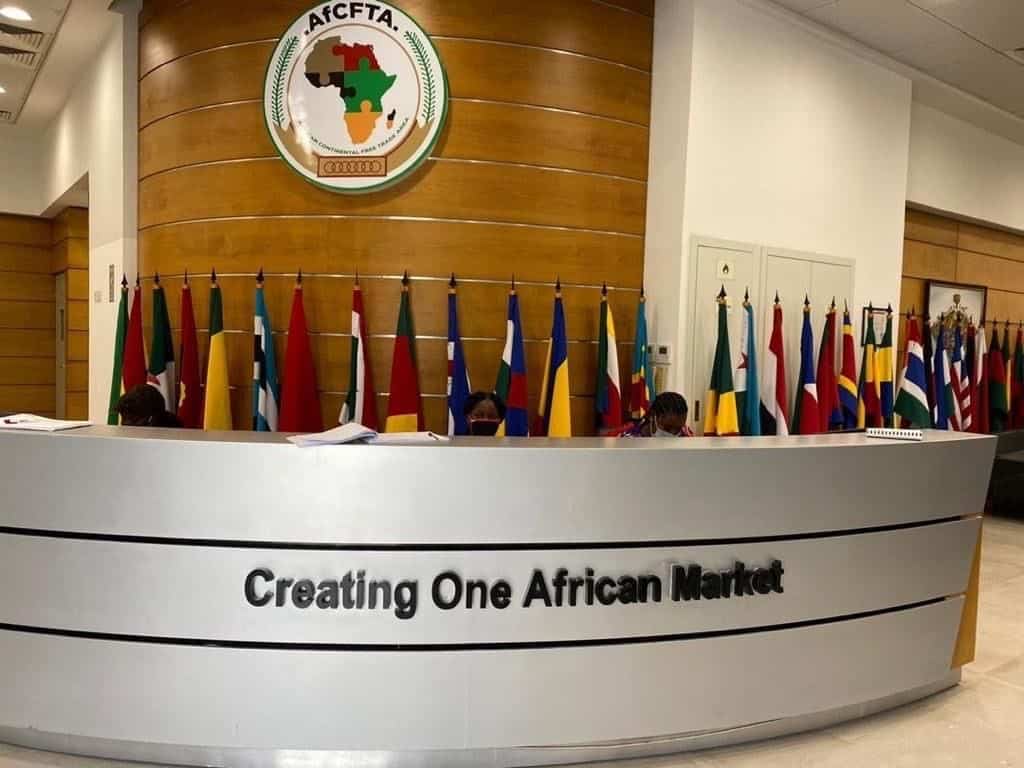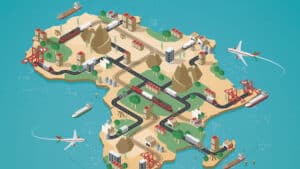
Non-Tariff Barriers in Intra-African Trade: Making the AfCFTA NTB Mechanism Work for African Cross-Border Traders
Hidden and Invisible Trade Barriers
As is with the Regional Economic Communities (RECs) in Africa, intra-African trade under the African Continental Free Trade Area (AfCFTA) agreement is threatened by the existence of hidden or invisible Non-tariff barriers to trade (NTBs). While most tariff barriers have been eliminated in Africa through the RECs and more are targeted through the AfCFTA agreement, the non-tariff barriers continue to persist within the continent and could further hinder the ease of movement of goods within Africa limiting gains under the new trade agreement. Concerns have, however, emerged on the effective identification, reporting, and resolution of these barriers.
Notably, the AfCFTA has established non-tariff barriers reporting, monitoring, and eliminating mechanism website to allow for reporting and follow-up by concerned governments to resolve the problems to enhance trade. However, the recorded number of lodged claims and complaints through the website is still low limiting the resolution of barriers that still inhibit intra-African trade under the RECs and the AfCFTA framework. Africa faces a range of these barriers including customs clearance delays, tedious import licensing processes, specific market restrictions, rules of origin, sanitary and phytosanitary measures, customs, and administrative entry barriers among others. Despite the platform promising speedy results through web-based or mobile phone mechanisms, many disadvantaged traders rarely use the existing approach which could further slow down gains under the AfCFTA.
The African Continental Free Trade Agreement seeks to create a single market for goods, and services, and enhance the movement of persons while creating a liberalized market for goods and services, enhancing regional and continental integration. However, the existence of non-tariff barriers to trade, which include restrictive practices and measures other than customs duties or tariffs can affect the effective flow of trade across borders. This can make trade both difficult and costly majorly affecting women, youth, the informal sector, and small-scale traders among other disadvantaged groups across Africa. For implementing stakeholders, concerns are on how to make the AfCFTA NTB online mechanism work for all including the disadvantaged traders, such as women and youth across the continent.
Making it work: Linking Cross-Border Traders
The first critical measure for the AfCFTA secretariat is to consider improving awareness levels of the mechanism’s existence through training and capacity building for disadvantaged traders across the continent. The adoption of training approaches would educate traders about the NTB mechanism, its purpose, and how it can benefit them increasing awareness and encouraging traders to report NTBs promptly and appropriately for action. Capacity building is equally necessary for traders to understand the various types of non-tariff barriers they are likely to encounter, how to identify them, and how to report accurately to efficiently address emerging challenges. Thus, this can equip traders with the knowledge and skills to promptly report any NTBs encountered with timely and comprehensive reports likely to drive quicker responses from the authorities. This approach also creates a platform for sharing experiences and challenges leading to more effective dialogues and problem-solving between traders and authorities, creating networks for traders to collaborate, and provide feedback for continued improvement of the AfCFTA NTBs mechanism.

It should not be lost on the AfCFTA NTBs mechanism implementors that the African continent is multilingual with common languages in English, Portuguese, French, Swahili, and Arabic among others, and thus the need to provide the mechanism in local languages. This not only enhances accessibility and inclusivity but also ensures that traders can understand the information and procedures in reporting NTBs irrespective of their linguistic backgrounds. This is also a prerequisite for effective communication with traders likely to better express their concerns and experiences which can improve the overall accuracy in reporting and the prompt resolution of reported barriers. Moreover, with improved understanding, traders are more likely to actively participate and report barriers and engage in policy discussions on the elimination of barriers. For the secretariat, this is also a demonstration of goodwill thus building trust and credibility among traders and encouraging them to report more frequently thus accelerating growth in intra-African trade as desired under the AfCFTA agreement. Providing the NTB mechanism in local languages further ensures that traders from various regions can participate equally and contribute to the success of the agreement.
A focus on training and sensitizing customs officials on non-tariff barriers (NTBs) that impact traders and how to address them in real-time are also required for the effective reduction of NTBs and their impact on cross-border trade. Customs officials are at the frontline of trade facilitation and are thus responsible for enforcing trade regulations. Training them on NTBs and their impact on traders helps them recognize and identify potential barriers during trade transactions, allowing for timely and efficient responses. Sensitization would ensure that customs officials consistently apply the NTB mechanism and relevant procedures across different entry points further promoting a reduction in non-trade barriers in supporting the efforts on the NTBs mechanism under the AfCFTA and RECs across the continent.
“It should not be lost on the AfCFTA NTBs mechanism implementors that the African continent is multilingual with common languages in English, Portuguese, French, Swahili, and Arabic among others, and thus the need to provide the mechanism in local languages.”
Including cross-border traders in the National Monitoring Committees (NMCs) for shaping the African Continental Free Trade Area (AfCFTA) non-tariff trade barrier (NTB) mechanism implementation and adoption is equally desirable. Cross-border traders tend to have direct experiences and encounter various barriers and thus their insights and knowledge would provide real-world perspectives on the challenges and opportunities helping to further design more practical and effective solutions. These stakeholder traders are also best positioned to identify NTBs that impact daily operations and their presence in committees would ensure that focus aligns with the most pressing barriers experienced by traders and thus address trade challenges. The inclusion of traders is also a stakeholder representation method to ensure that their interest is adequately represented ensuring more inclusive decision-making and enhancing a sense of ownership and accountability among traders in the NTB mechanism. This would also provide an opportunity for committee and continental implementers with co-creation opportunities in addressing NTBs while also fostering a sense of belonging to a large regional trade community.



